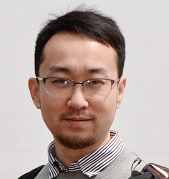Abstract
With the goal of electricity system decarbonization, conventional synchronous generators are gradually replaced by converter-interfaced renewable generations. Such transition is causing concerns over system frequency and rate-of-change-of-frequency (RoCoF) security due to significant reduction in system inertia. Existing efforts are mostly derived from uniform system frequency response model which may fail to capture all characteristics of the systems. To ensure the locational frequency security, this paper presents a deep neural network (DNN) based RoCoF-constrained unit commitment (DNN-RCUC) model. RoCoF predictor is trained to predict the highest locational RoCoF based on a high-fidelity simulation dataset. Training samples are generated from models over various scenarios, which can avoid simulation divergence and system instability. The trained network is then reformulated into a set of mixed-integer linear constraints representing the locational RoCoF-limiting constraints in unit commitment. The proposed DNN-RCUC model is studied on the IEEE 24-bus system. Time domain simulation results on PSS/E demonstrate the effectiveness of the proposed algorithm.
Index Terms
Deep learning, Frequency stability, Learning-embedded optimization, Low-inertia power systems, Renewable integration, Rate of change of frequency, Unit commitment.
Cite this paper:
Mingjian Tuo and Xingpeng Li, “Deep Learning based Security-Constrained Unit Commitment Considering Locational Frequency Stability in Low-Inertia Power Systems”, 54th North American Power Symposium, Salt Lake City, UT, USA, Oct. 2022.

